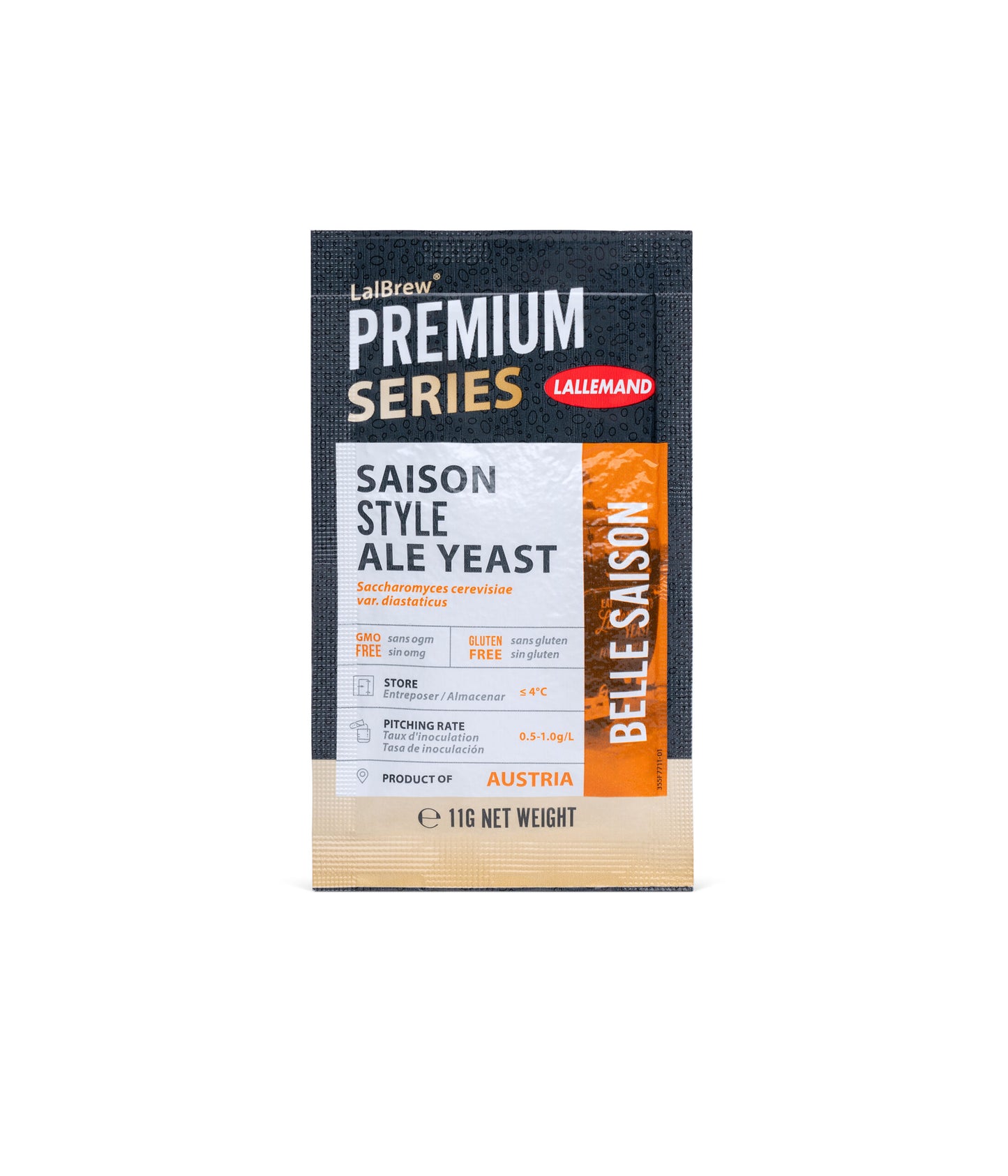LalBrew Belle Saison™ is a Belgian-style ale yeast selected specially for its ability to create Saison-style beers. LalBrew Belle Saison™ is a diastaticus strain that allows the brewers to achieve the high attenuation characteristic of this classic style. Designed for warm-temperature fermentation true to traditional “Farmhouse” production methods, beers brewed with LalBrew Belle Saison™ are fruity, spicy and refreshing. Through expression of a β-glucosidase enzyme, LalBrew Belle Saison™ can promote hop biotransformation and accentuate hop flavor and aroma in hoppy saison-style beers.
MICROBIOLOGICAL PROPERTIES
Classified as a Saccharomyces cerevisiae var. diastaticus, a top fermenting yeast.
Typical Analysis of LalBrew® Belle Saison yeast:
- Percent solids 93% – 97%
- Living Yeast Cells ≥ 5 x 109 per gram of dry yeast
- Wild Yeast Media – This strain is known to grown on some wild yeast media including LWYM and LCSM.
- Wild Yeast < 1 per 106 yeast cells
- Bacteria < 1 per 106 yeast cells
Finished product is released to the market only after passing a rigorous series of tests
*According to the ASBC and EBC methods of analysis
BREWING PROPERTIES
In Lallemand’s Standard Conditions Wort at 20°C (68°F) LalBrew Belle Saison™ yeast exhibits:
- Vigorous fermentation that can be completed in 10 days. The majority of fermentation is complete after the first 4 days, with gravity continuing to drop slowly thereafter due to glucoamylase activity. Ensure final gravity is stable prior to packaging.
- Very High Attenuation and Low Flocculation
- Aroma and flavor is traditional of Saisons with citrus and pepper notes.
- The optimal temperature range for LalBrew Belle Saison™ yeast when producing traditional styles is 20 – 35°C (68 – 95°F)
- This strain is POF Positive.
Saccharomyces cerevisiae var. diastaticus strains are capable of utilizing some types of dextrins. Extra care should be taken to ensure proper cleaning procedures are in place to avoid any cross-contamination with other brews.
Fermentation rate, fermentation time and degree of attenuation are dependent on inoculation density, yeast handling, fermentation temperature and nutritional quality of the wort.


